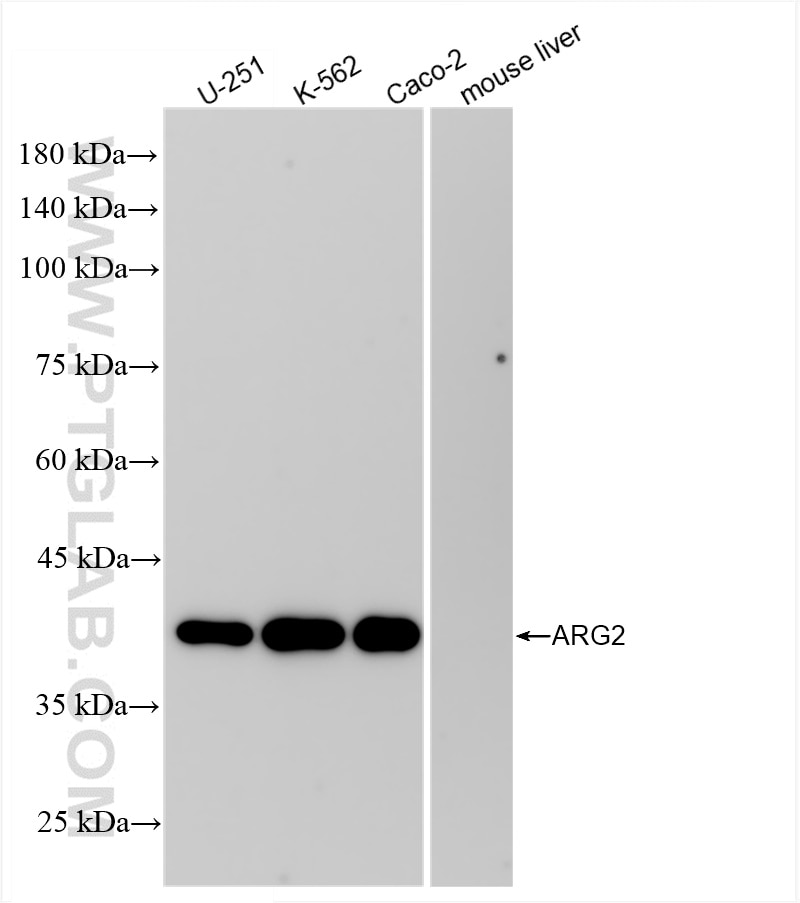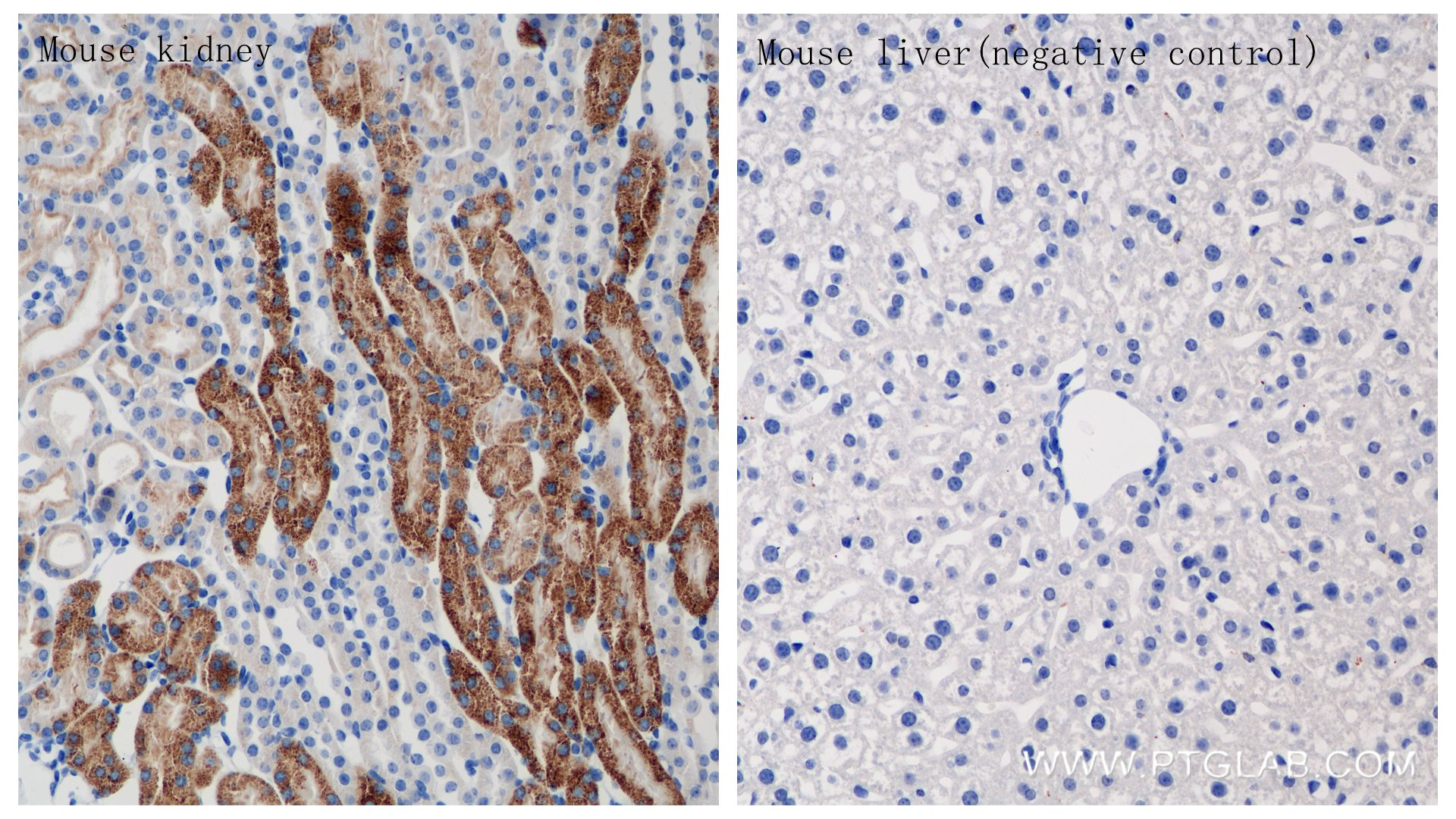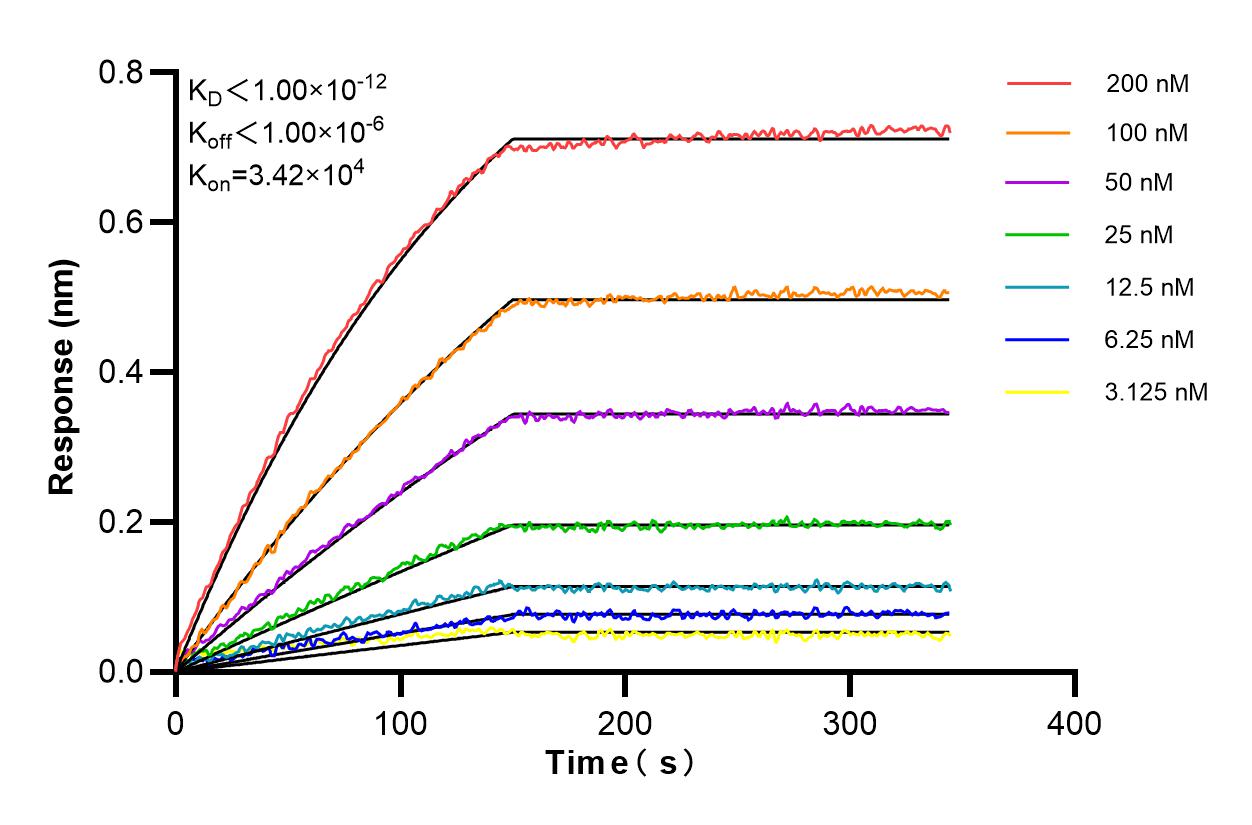Validation Data Gallery
Tested Applications
| Positive WB detected in | U-251 cells, mouse kidney tissue, K-562 cells, Caco-2 cells |
| Positive IHC detected in | mouse kidney tissue Note: suggested antigen retrieval with TE buffer pH 9.0; (*) Alternatively, antigen retrieval may be performed with citrate buffer pH 6.0 |
Recommended dilution
| Application | Dilution |
|---|---|
| Western Blot (WB) | WB : 1:5000-1:50000 |
| Immunohistochemistry (IHC) | IHC : 1:1000-1:4000 |
| It is recommended that this reagent should be titrated in each testing system to obtain optimal results. | |
| Sample-dependent, Check data in validation data gallery. | |
Product Information
84808-5-RR targets Arginase-2 in WB, IHC, ELISA applications and shows reactivity with human, mouse samples.
| Tested Reactivity | human, mouse |
| Host / Isotype | Rabbit / IgG |
| Class | Recombinant |
| Type | Antibody |
| Immunogen |
CatNo: Ag6609 Product name: Recombinant human ARG2 protein Source: e coli.-derived, PET28a Tag: 6*His Domain: 1-354 aa of BC001350 Sequence: MSLRGSLSRLLQTRVHSILKKSVHSVAVIGAPFSQGQKRKGVEHGPAAIREAGLMKRLSSLGCHLKDFGDLSFTPVPKDDLYNNLIVNPRSVGLANQELAEVVSRAVSDGYSCVTLGGDHSLAIGTISGHARHCPDLCVVWVDAHADINTPLTTSSGNLHGQPVSFLLRELQDKVPQLPGFSWIKPCISSASIVYIGLRDVDPPEHFILKNYDIQYFSMRDIDRLGIQKVMERTFDLLIGKRQRPIHLSFDIDAFDPTLAPATGTPVVGGLTYREGMYIAEEIHNTGLLSALDLVEVNPQLATSEEEAKTTANLAVDVIASSFGQTREGGHIVYDQLPTPSSPDESENQARVRI 相同性解析による交差性が予測される生物種 |
| Full Name | arginase, type II |
| Calculated molecular weight | 39 kDa |
| Observed molecular weight | 39 kDa |
| GenBank accession number | BC001350 |
| Gene Symbol | ARG2 |
| Gene ID (NCBI) | 384 |
| Conjugate | Unconjugated |
| Form | |
| Form | Liquid |
| Purification Method | Protein A purfication |
| UNIPROT ID | P78540 |
| Storage Buffer | PBS with 0.02% sodium azide and 50% glycerol{{ptg:BufferTemp}}7.3 |
| Storage Conditions | Store at -20°C. Stable for one year after shipment. Aliquoting is unnecessary for -20oC storage. |
Background Information
Arginase 2 is composed of 354 amino acid residues, including an NH2-terminal presequence for mitochondrial targeting and import. In the mitochondria, ornithine generated by Arginase 2 will give rise to glutamate via ornithine aminotransferase (OAT). Glutamate participates in several transamination reactions, including forming α-ketoglutarate (αKG) that may enter the TCA cycle and increase cycle intermediates and flux.Arginase 1 is mainly expressed in hepatocytes, and mice with a disruption of Arginase 1 gene die soon after birth. Arginase 2 is poorly expressed in hepatocytes, and most highly expressed in kidney, prostate, and immune cells such as monocyte/ macrophages. (PMID: 25234945,PMID: 27214549)
Protocols
| Product Specific Protocols | |
|---|---|
| IHC protocol for Arginase-2 antibody 84808-5-RR | Download protocol |
| WB protocol for Arginase-2 antibody 84808-5-RR | Download protocol |
| Standard Protocols | |
|---|---|
| Click here to view our Standard Protocols |




